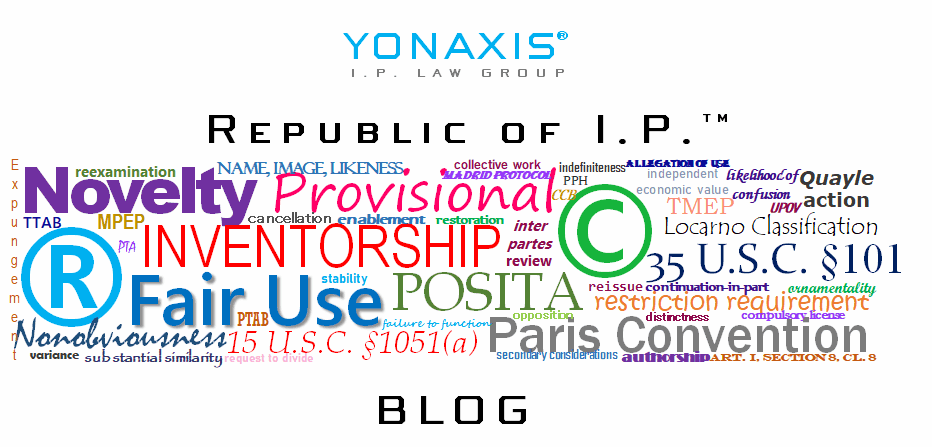On October 11, 2018, the USPTO published in the Federal Register a rule change, 83 F.R. 51340, to take effect today, November 13, 2018. For all AIA post-grant petitions (IPRs, PGRs, and CBMs) filed on or after this date, the broadest reasonable interpretation (BRI) standard will no longer be used in claim construction for these …
Category: indefiniteness
Fed Circuit Watch: PTAB Error to Not Consider Arguments in Reply Brief
On August 27, 2018, the Court of Appeals for the Federal Circuit handed down Ericsson Inc. v. Intellectual Ventures I LLC,[1] in which the rules played an important role in decisions made in the case. The facts are as follows. Intellectual Ventures I owns U.S. Patent No. 5,602,831 (‘831), entitled “Optimizing packet size to eliminate …
Fed Circuit Watch: Enabling Scope of Design Patent Claims Expands – Greatly
In a potentially ground-breaking decision in design patent prosecution, the Court of Appeals for the Federal Circuit handed down In re Maatita,[1] on August 20, 2018. The facts are as follows. Ron Maatita filed a design patent application with the USPTO, Serial No. 29/404,677, claiming an athletic shoe sole design. As with all design patent …
Fed Circuit Watch: Plain Claim Language Not Narrowed Unless Patentee Explicitly Disclaims Scope
An interesting study in organic chemistry appeared at the Federal Circuit. On April 16, 2018, a Fed Circuit panel in Sumitomo Dainippon Pharma Co., Ltd. v. Emcure Pharm. Ltd.,[1] held that plain claim language will be construed narrowly absent the patentee’s clear disclaimer limiting its scope. First a primer on stereochemistry, which is the study …
Fed Circuit Watch: Unreasonably Broad PTAB Claim Construction Reversed
On March 19, 2018, the Court of Appeals for the Federal Circuit rejected, in In re Power Integrations, Inc.,[1] a PTAB decision finding that claims were invalidated as anticipated as unreasonably overbroad. The claim construction was subject in an ex parte reexamination of Power Integrations’ U.S. Patent No. 6,249,876 (‘876). ‘876 is directed to “Frequency …
Fed Circuit Watch: Well-Prepared Lexicography Dooms Claim Term as Obvious
This, unfortunately, was a bad week for Steuben Foods, Inc., since this is the second case it lost at the Federal Circuit against the same adversary, Nestlé Foods. This time, in Nestle USA, Inc. v. Steuben Foods, Inc.,[1] the Court of Appeals for the Federal Circuit, on March 13, 2018, ruled that Steuben Foods could …
Fed Circuit Watch: Another §101 Decision, Different Rationale, May Signal Future Changes to Patent-Eligibility Analysis
As of February 14, 2018, at last count, there have been six substantive opinions rendered by the Court of Appeals for the Federal Circuit relating to 35 U.S.C. §101, creating an unusually large body of §101 jurisprudence within only six weeks of the calendar year. Two of these opinions, Move, Inc. v. RE/MAX Int’l, Inc., …
McAward as Precedential and Lower Standard for Indefiniteness During Prosecution
Way back on August 25, 2017, the U.S. Patent and Trademark Office designated Ex parte McAward[1] as precedential authority for defining the USPTO and the PTAB’s policy on assessing indefiniteness as defined under 35 U.S.C. §112(b)[2] during prosecution. However, McAward does not so much define the USPTO’s rules on indefiniteness but rather reasserts its position …
